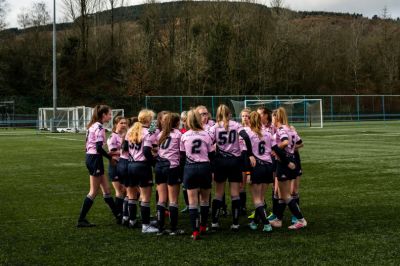
In response to the NSPCC Child Protection in Sport Unit checklist (link provided above), we have provided some guidance for each point to provide you with reassurance that we expect all small sided and junior clubs to adhere to the FAW Safeguarding Policy, meet club accrediation requirement and to embed safeguarding into their culture.
Please note that if there is anything that you are unsure on, or you need further clarification, we do advise that you seek further information directly from the club before you complete your child's registration process.
Keeping Children Safe in Sport- A Guide for Parents and Carers
CPSU CHECKLIST
Has the club achieved a Sports Body Accreditation?
The FAW have a club accreditation programme and this requires that all small sided and junior football clubs meet a set criteria in order for them to be accredited and to receive clearance from the FAW to operate. The following link will provide you with information on the accreditation criteria: Club Accreditation. You can check with the club as to what standard of accreditation they have achieved.
Even if your club is accredited, you should check that the organisation has:
A named and contactable welfare officer responsible for the implementation of their safeguarding policy and issues regarding the protection of children or young people.
It is a requirement for all small sided and junior football clubs to have a registered Club Safeguarding Officer ("CSO") in place at all times. For the role and responsibilities of the CSO, please check the Safeguarding Officer section of this website. The contact details for the CSO should be provided at the player induction stage or at the start of a season, however the club should always be able to provide the details of their CSO upon request. It is also compulsory that Leagues, and Area Associations have a registered Safeguarding Officer and these contact details can also be provided upon request.
Procedures for dealing with complaints or concerns regarding poor practice, abuse or neglect.
The FAW have provided all clubs with guidance on how they should deal with complaints or concerns regarding poor practice, abuse or neglect. An example of a complaints procedure can be found on the Safeguarding Officer section of our website and information is also provided in our FAW Safeguarding Policy, Practices and Procedures. The FAW also have a Safeguarding Team who can provide guidance and support.
Written standards of good practice (ie code of conduct/behaviour)
The FAW have developed a Code of Conduct for all players, coaches and parents/spectators and these are provided on our website under each section. We expect clubs to implement Code of Conducts and to educate their members on the standards of behavior expected at the club. The FAW have also provided best practice guidelines to ensure all clubs and registered members have the understanding on how to correctly respond to different scenarios or enable clubs to ensure they put the correct measures in place.
A parental consent/emergency details form that you must return to the club
The FAW have a parental consent/emergency details form that your club can adopt, or the club may wish to develop their own. This can be requested from the club.
Safe recruitment procedures for those working with young people
All clubs must meet accreditation standards and this sets out requirements around the recruitment of volunteers. For example, all volunteers must have a valid DBS check and the necessary qualifications to undertake their role. Its also a requirement that all roles involved in a club are registered on the COMET system.
Access to appropriate safeguarding training
It is compulsory for all Club Safeguarding Officers to complete the FAW Safeguarding Award to ensure they are provided with the necessary training to undertake the role.
Does the organisation have a safeguarding policy to help protect your child?
The FAW has a Safeguarding Policy in which all FAW affiliated clubs must read, understand and adhere to.
If you or your child has any worries, who can you talk to?
The Club Safeguarding Officer should be available for support at all times. We encourage all clubs to provide an open environment and promote their Club Safeguarding Officer to ensure all players understand that they can come forward with any concerns.
Does the organisation have a written code of behaviour or code of conduct?
The FAW have Codes of Conduct in place and all clubs are encouraged to implement these. The club are responsible for monitoring and dealing with concerns regarding their codes of conducts.
What boundaries exist concerning club relationships?
Please see our FAW Safeguarding Policy.
What ratio of supervising adults to children is there?
We have accreditation requirements to meet the appropriate supervision rations and this information is provided in our best practice guidelines.
What about arrangements for away fixtures and other events?
The FAW have developed best practice guidelines around away fixtures and these available for all clubs to access. This information can also be requested from the club.
Have all staff and volunteers been selected through a proper recruitment process?
As previously stated, all clubs must meet accreditation standards and this sets out requirements around the recruitment of volunteers. For example, all volunteers must have a valid DBS check and the necessary qualifications to undertake their role. Its also a requirement that all roles involved in a club are registered on the COMET system.
What Safeguarding training has been provided for staff and volunteers?
Its compulsory for all Safeguarding Officers to complete the FAW Safeguarding Award and ensure all members at the club are aware of the FAW Safeguarding Policy, Code of Conducts and Best Practice Guidelines. The FAW Safeguarding Team have also developed sections for coaches, players and referees to access safeguarding information.
Is the coach qualified?
All coaches registered on the COMET system will have the necessary qualification to enable them to undertake the role.
